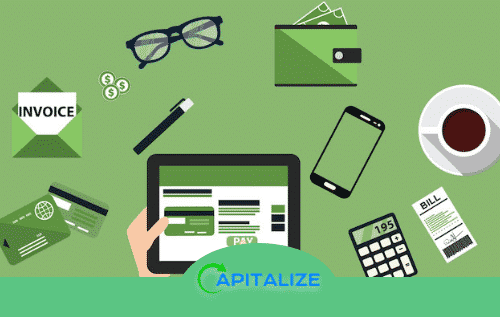Picking the Right Invoice Factoring Company
By Andres Fernandez
January 22, 2021 – 9 min read

It can get really frustrating when your invoices haven’t been paid off yet. Waiting and waiting for the client to finally pay you can constraint your business cash flow, especially those unpaid cycles of 30, 60, or 90 days before the payment finally arrives. This can cause business owners to trail behind on their expenses, such as inventory or payroll.
Then comes Invoice Factoring, it is a version of financing that allow small and medium sized businesses to have access to cash advances on their accounts receivables. As an alternative in having to wait weeks to receive payments on invoices, invoice factoring help businesses get paid quicker. This provides funds to businesses they’ve already earned to continue to grow their business and not fall behind.
What is Invoice Factoring?
Invoice Factoring is close to a loan, but isn’t and let me explain. It’s a financial transaction in which a business receives capital when it sells its accounts receivables (invoices) at a discount. Invoice Factoring companies usually gives out an advance of 70-90 percent of how much the invoice is valued at. The remaining balance set aside when the invoice is paid minus a fee.
Invoice factoring is also known as accounts receivable factoring, or ‘invoice factoring.’ Although, with some forms of invoice factoring, a business owner secures a short-term loan using the unpaid invoices as collateral.
How do Factoring Companies Work?
First, the process begins with the owner of the business, which decides which factoring company to work with. Once the factoring company agrees to work with the business owner, then they can start by selling their unpaid invoices for working capital. When the factoring company checks and verifies the invoice, the factor pays the business owner 70-90 percent of the invoice. Once the customer of the business owner pays the invoice, the factoring company pays the business owner the remainder of the invoice minus a fee.
Three Parties Involved in the Process:
- Your Business (invoice issuer)
- Your business’ client (who owes payment on the invoice)
- The factoring company (who supplies the cash)
Capitalize Your Invoices
Sell your invoices and receive working capital while you wait until the invoice is paid off by your customer.
Learn MoreFactoring Process
- Your business delivers to the customer and issue an invoice with net terms.
- The company then “sells” the invoice to the factoring company.
- The company receives an advance payment, typically between 70-90 percent of the value of the invoice.
- With working capital, the company can now pay off expenses and continue to grow the business.
- When the customer pays the unpaid invoice, the business receives a “rebate” for the remainder of the funds, minus a fee that based on the term and value of the invoice.
The Pros and Cons of Factoring
Pros | Advantages
Faster cash: Invoice factoring can provide working capital immediately to help cover the funding gap caused by slow-paying customers
Better Cash Flow: You can keep loyal customers on longer payment terms but still improve your cash flow to help you grow your business.
Easier Approval: Showing the invoices to the factoring company and seeing the value on them will make the approval easier. Typically, factoring companies only care about the value of the invoices you’re looking to factor and the creditworthiness of your customers.
No Collateral Required: Invoice Factoring is unsecured, meaning collateral is not required.
Cons | Disadvantages
Not for every businesses: It’s not available to B2C companies or companies without notable, larger clients.
Costly: It tends to be more expensive than traditional bank financing.
Liability: There’s the potential liability for overdue invoices.
Choosing The Best Factoring Company For Your Business
Working capital is critical for small businesses to operate and have control over cash flow gaps. Equally as important as making an educated and informed decision about which financing provider you decide to partner with.
To help you get a better understanding of what type of factoring company is right for you, here are a 8 questions to ask in search for the best invoice factoring company for your business.
What factoring services do they offer?
When choosing an invoice factoring company, you should consider what services you need for your business. Do you want to factor all invoices or select a few that you want to submit? Are you willing to take a risk in case your customer decides to not pay on time?
A few key factoring terms and options you need to know and be aware of:
Spot Factoring vs. Whole Ledger Factoring
Spot Factoring: This allows you to factor a single invoice on a one-time basis without long-term contracts, meaning more flexibility. Fees do tend to be higher with spot factoring.
Whole Ledger Factoring: Also known as Full Turn Factoring, is when a business is required to submit all client invoices. Rates are typically lower than spot factoring, but most whole ledge factors will charge a hefty termination fee if you decide to cancel your contract.
Recourse vs. Non-recourse
Recourse: This when business owners take on the risk if their customers fails to pay the invoice on time. If they do not pay back the invoice you submitted to the factoring company, you take liability to cover the costs and purchase back the invoice from the factor. Recourse factoring is less risky for invoice factoring company, plus it’s generally the most affordable option.
Non-recourse: Business owners will not be liable if their customers fails to pay. However, the fees ten to be higher because the factoring company takes on more risk. Additionally, most non-recourse factors tend to avoid invoices from your customers who have poor creditworthiness.
Factoring vs. Invoice Financing
Invoice Factoring: Invoice factoring is selling your business accounts receivables at a discount, typically between 70-90 percent to a factoring company in return for working capital. Unlike traditional bank financing, this provides more flexibility because the cash you receive is dependent on the invoices you submit.
Invoice Financing: Business owners don’t sell their accounts receivable with invoice financing. Instead, the owner of the business uses their accounts receivables as collateral to qualify for a loan. The loan amount all depends on the value and strength of your invoices. There’s more risk for a small business because the invoices are still under the business owner’s ownership.
What terms and rates do they offer?
The rate fee for invoice factoring companies are either variable or flat. The more invoices you factor, the lower your rate will be.
With a variable fee structure, the longer your invoices go unpaid the more fees you’ll accrue over time. However, variable fee structures are more complicated to calculate, they can be cost effective depending on the profile of your business, because the rate is based on the risk of the account.
With a flat fee structure, the rate stays fixed no matter how overdue the invoice is. However, flat rate fees are usually higher than variable fee structures. Flat rate fees are calculated by multiplying the face value of an invoice with the flat fee.
Factoring terms and rates are determined by a number of factors:
- Business industry
- Volume of invoices
- Net terms of the invoice
- Type of service
- Quality of clients
What industries do factors work with?
Transportation
Staffing Services
Manufacturing
Construction
Distribution
Freelancers
IT Services & Software Development
Commercial Services
Consulting
Retail
Are there hidden costs or fees?
Termination Fees: If you sign a long-term contract with a factor and then decide to cancel it, you may pay a sizable cancellation fee. Cancellation fees can range from 3% to 10% of your factoring credit line.
Monthly Minimum Fees: Some invoice factoring companies require businesses to factor a certain amount of invoices per month. If a business fails to factor enough invoices, the factoring company will charge an additional fee.
Maintenance Fees: The fee is charged to keep your account open with the factoring company. Maintenance fees are usually charged on a monthly basis.
Due Diligence Fees: This fee is charged whenever the factor needs to verify the background of your client. The factor will make sure you client doesn’t have any existing liens, is in good credit standing, unpaid taxes, and more.
What’s in the factoring agreement?
The invoice factoring agreement is a financial contract that explains the costs and terms of your factoring plan.
What’s the factor’s advance rate?
An advance rate is the percentage of the invoice face value. A typical advance rate is 70-90 percent of face value invoices. For example, if your customer owes you $10,000, you should expect to receive a cash advance of $7,000 to $9,000 to your account.
How quickly can you get funds?
Some factoring companies take months to set up your business account, but through the modern era of technology, Capitalize can get your account set up in less than 10 days, and once the account has been set up, you’ll receive your funds within hours.
Do they offer good service?
More than likely, you’ll want to speak to a financing advisor who can facilitate inquiries throughout the whole process. Capitalize has a team of dedicated advisors that will help navigate expected challenges and make sure you’re getting the appropriate amount of funds for your business.
Capitalize offers a smooth approach to invoice factoring
Capitalize Loans specializes in online invoice factoring for business owners who want flexibility, speed, and transparency of rates and terms.
If you’re interest in learning more about invoice financing, give us a call with any questions at 1 (800) 227-7744



